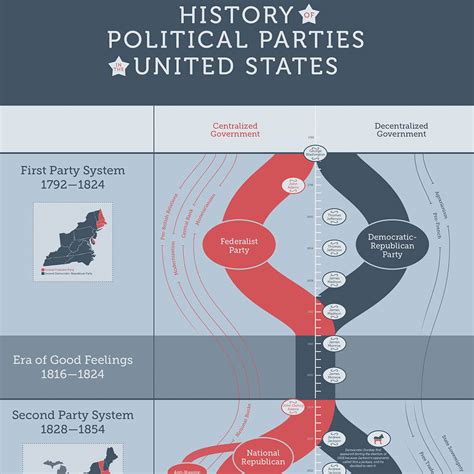Introduction

The Republican Party emerged as a dominant force in shaping the political landscape of the United States. Its ideology, platform, and evolution have left an indelible mark on American history. This comprehensive analysis delves into the history, principles, and impact of the Republican Party, exploring its role in shaping political discourse and governance.
Foundation and Early Principles
The Republican Party formed in 1854, rooted in the abolitionist movement and opposition to slavery. Its founding members sought to expand economic opportunities, promote individual liberty, and limit the federal government’s role in society.
Key Principles:
- Anti-slavery and support for civil rights
- Limited government and free-market capitalism
- Individualism and personal responsibility
Reconstruction and Gilded Age
After the Civil War, the Republican Party played a pivotal role in Reconstruction, protecting the rights of freed slaves and promoting industrial growth. However, the Gilded Age brought challenges, with the party associating itself with big business and the rise of political corruption.
Reconstruction Era:
- Enacted the Civil Rights Act of 1866 and the 14th and 15th Amendments
- Established the Freedmen’s Bureau to assist former slaves
Gilded Age:
- Aligned with industrialists and robber barons
- Suffered from scandals and corruption allegations
The Progressive Era and Theodore Roosevelt
By the early 20th century, the Republican Party faced criticism for its ties to big business. Theodore Roosevelt’s presidency ushered in the Progressive Era, marked by reforms aimed at breaking monopolies, protecting workers, and conservation of natural resources.
Roosevelt’s Reforms:
- Enacted the Hepburn Act to regulate railroads
- Created the Food and Drug Administration (FDA)
- Established national parks and wildlife refuges
The New Deal Era and Franklin D. Roosevelt
During the Great Depression, the Republican Party opposed President Franklin D. Roosevelt’s New Deal policies. These policies, designed to alleviate economic distress, expanded the role of the federal government in the economy and social welfare.
New Deal Policies:
- Established the Social Security system
- Implemented public works projects to create jobs
- Regulate the financial industry
Post-War Conservatism and Eisenhower
After World War II, the Republican Party shifted towards conservatism, emphasizing limited government, lower taxes, and traditional values. President Dwight Eisenhower pursued a moderate agenda, promoting economic growth and containing Soviet influence during the Cold War.
Eisenhower’s Policies:
- Reduced government spending
- Promoted free-market principles
- Intervened in the Korean War
The Reagan Revolution and Conservative Dominance
Ronald Reagan’s presidency marked a major turning point for the Republican Party, known as the “Reagan Revolution.” Reagan’s policies of “supply-side economics,” deregulation, and military buildup reshaped the American economy and foreign policy.
Reagan’s Policies:
- Implemented tax cuts for individuals and businesses
- Reduced government regulations on businesses
- Increased defense spending
The 21st Century and Trump’s Presidency
In the 21st century, the Republican Party faced challenges with the rise of populism and the growing diversity of the American electorate. President Donald Trump’s policies were divisive, including tax cuts, border restrictions, and withdrawal from international agreements.
Trump’s Policies:
- Enacted tax cuts for individuals and corporations
- Implemented travel bans on citizens from several Muslim-majority countries
- Withdrew the United States from the Trans-Pacific Partnership
Impact and Legacy
The Republican Party has played a profound role in shaping American politics and governance. Its principles of individual liberty, limited government, and free-market capitalism have influenced policymaking for generations.
Key Impact:
- Promote economic growth and job creation
- Protect individual rights and civil liberties
- Limit the role of the federal government
- Shape foreign policy and national security
Conclusion
The Republican Party continues to be a dominant force in American politics. Its history, ideology, and platform have evolved over time, reflecting the changing needs and aspirations of the electorate. As the United States navigates the challenges of the 21st century, the Republican Party’s principles and policies will undoubtedly shape the future of the nation.
